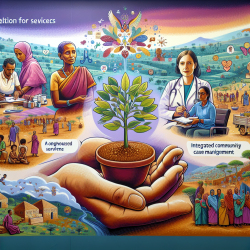Unlock the Secrets to Transforming Health Services: What Ethiopia's Study Reveals!
In the realm of special education and therapy services, understanding the barriers and facilitators to accessing care is crucial. A recent study titled Access to integrated community case management of childhood illnesses services in rural Ethiopia: a qualitative study of the perspectives and experiences of caregivers offers valuable insights that can be applied to improve service delivery in various contexts, including special education.
Key Findings from the Ethiopian Study
The study conducted in rural Ethiopia highlights several barriers caregivers face in accessing integrated community case management (iCCM) services for childhood illnesses. These barriers include:
- Availability of Health Extension Workers (HEWs): Frequent absenteeism of HEWs at health posts was a significant barrier.
- Geographic Challenges: Distance to health posts and poor road conditions limited access.
- Financial Constraints: While services were free, indirect costs like transportation were burdensome.
- Social Networks: Influences from family and community members often hindered service utilization.
Lessons for Practitioners in Special Education and Therapy Services
These findings are not only relevant to healthcare providers but also to those in special education and therapy services. Here are some actionable insights:
- Ensure Availability: Just as HEWs need to be present, therapists and educators must be reliably available to their clients.
- Address Geographic Barriers: Consider offering remote or online services to reach clients in hard-to-access areas, similar to how TinyEYE provides online therapy services.
- Reduce Financial Barriers: Explore funding options or subsidies for families who may face financial difficulties in accessing services.
- Leverage Social Networks: Engage with families and communities to build trust and encourage service utilization.
Encouraging Further Research
The study underscores the importance of understanding the local context and the unique barriers faced by different communities. Practitioners are encouraged to conduct further research to identify specific challenges and opportunities within their service areas.
To read the original research paper, please follow this link: Access to integrated community case management of childhood illnesses services in rural Ethiopia: a qualitative study of the perspectives and experiences of caregivers.










